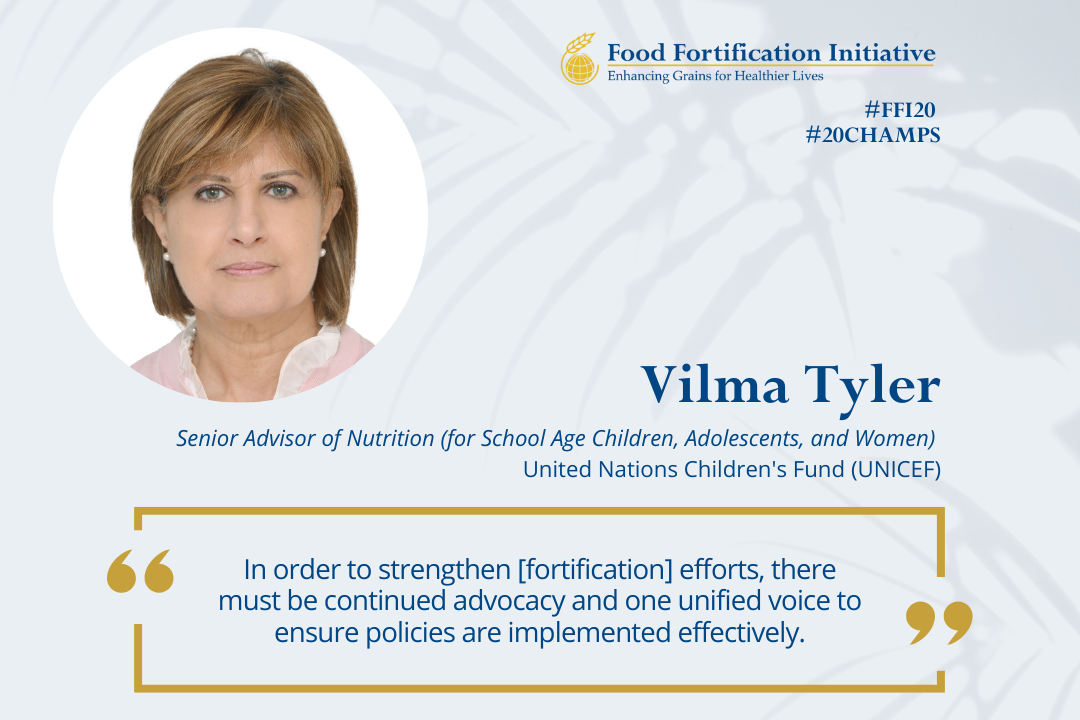#FFI20: Vilma Tyler
Senior Advisor of Nutrition (for School Age Children, Adolescents, and Women) at UNICEF
FFI: How did you become interested in nutrition?
Tyler: Growing up in Lebanon during the civil war, I witnessed so much suffering and so many children going hungry. I decided that when I grew up, I wanted to do something that would make a difference in people’s lives to alleviate their suffering.
FFI: What inspired you to become involved with food fortification?
Tyler: I was first introduced to food fortification while working as a consultant for UNICEF and understanding how what seemed like a simple and effective intervention could have a great impact on people’s well-being.
FFI: How is your organization prioritizing fortification?
Tyler: UNICEF’s Nutrition Strategy 2020-2030 supports a universal premise for all of its nutrition programs; prevention comes first, in all contexts. If prevention fails, treatment is a must. As part of our system’s approach to prevent malnutrition, especially among the most vulnerable women and children, and to protect their micronutrient status, UNICEF prioritizes and promotes large-scale food fortification as a cost-effective strategy to improve the quality of diets.
FFI: In your experience what are the main components to a successful fortification program?
Tyler: The most important component is a situational assessment of the population’s micronutrient status to inform what the intervention should focus on. Secondly, advocacy ensures buy-in and commitment from governmental bodies to develop policies and regulations that will support implementation and enforcement. Mandatory legislation for fortification is essential to create a level playing field. A strong monitoring system ensures quality programming which will, in turn, ensure impact. It is also important to engage relevant stakeholders, both from the private and public sector, starting in the planning phase to ensure commitment and sustainability. Effective communication to help people understand and accept fortification is also key.
FFI: What are the greatest challenges you have encountered in planning or implementing fortification programs? And how did you address those challenges?
Tyler: Firstly, the issue of data gaps to support the intervention, as well as poor government commitment to adopt policies and sub-optimal planning to ensure quality monitoring systems. Continued advocacy and supporting government by conducting national surveys is important to highlight the nutrition situation and capacity building to relevant stakeholders in the various sectors.
FFI: What can we do as a society to continue strengthening fortification efforts?
Tyler: In order to strengthen these efforts, there must be continued advocacy and one unified voice to ensure policies are implemented effectively. It is also important to work with national governments to develop or strengthen monitoring systems for sustainable programming.
This interview is part of the #FFI20 Champions campaign, a celebration of fortification heroes who have helped build a smarter, stronger, and healthier world by strengthening fortification programs over the past 20 years. To read interviews with other champions, visit the #FFI20 Champions campaign homepage.

